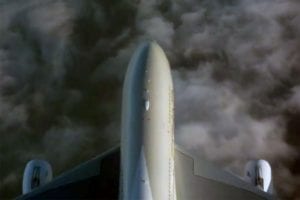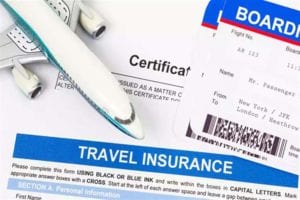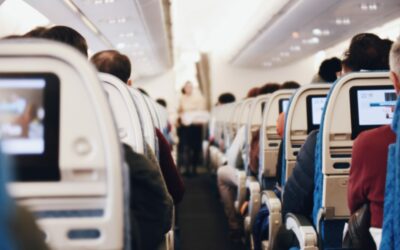What I don’t know about the COVID-19 travel world
 I don’t know much about the COVID-19 travel world. I am supposedly an expert. However, so much is happening and changing so quickly. Here are questions that have been asked of me and some more that I have asked. These questions do not seem to have consistent answers.
I don’t know much about the COVID-19 travel world. I am supposedly an expert. However, so much is happening and changing so quickly. Here are questions that have been asked of me and some more that I have asked. These questions do not seem to have consistent answers.
These questions and confusion are not presented in any particular manner. However, they are important to many aviation consumers caught up in this coronavirus (COVID-19) issue.
Should the airlines be bailed out? Or should we allow the bankruptcy process to work?
This is a tough one. We all know that the entire aviation industry is too big to fail. But, evidently, it does need some major restructuring. This aviation bailout not only saves the airlines, but it saves thousands of jobs in the airline industry from flight attendants to gate agents and from pilots to mechanics.
For years we have heard airline CEOs intone, “Let the market decide.” However, that has only applied to airline passengers, airfares, extra fees, and customer service. The other airline mantra has been, “They can vote with their wallets.” Likewise, that option only works if there were an opportunity to do so. Passengers have little sympathy for an industry that regularly treats them more like cargo than human beings.
When it comes to airline management, the mantra seems to be, “Help us. We are too important to the economy to go bankrupt.” This has happened regularly in recent history since the disaster of 9/11. Congress regularly provides more bailout money to the airlines and the airlines spend their billions in profits on stock buybacks rather than building a capital bulwark against the next major crisis. Plus, the treatment of passengers is abominable.
I realize that our country and the world is not in the condition to have airline transportation die. On the other hand, this is as good a time as any to take a serious look under the hood of the aviation machine. A group of consumers organizations and Senators are asking that the public get some guarantees back from airlines prior to providing the money they obviously need.
Travelers United wants this crisis to lead to better customer service. And, we want the airline to keep flying. However, we need some signs from the aviation industry that they realize passengers are their lifeblood as well as today’s financial protectors. A simple acknowledgment of our value to them and small changes would get passengers to enthusiastically support airline assistance.
READ ALSO ON TRAVELERS UNITED:
Learn new TSA COVID-19 rules
Are COVID-19 headlines overhyped and sensationalized?
FTC can stop hidden lodging fees. Why won’t it?”
Is my airfare covered if my flight is delayed?
For years airlines have allowed passengers with booked flights to cancel their travels should flights be refundable. Even non-refundable flights have often become refundable when airline action resulted in significant schedule changes. American once has a 60-minute time limit on changes in schedules after purchase. Delta Air Lines noted a 90-minute limit before passengers could request a refund. However, recently, United Airlines changed its refundability rule moving the needed schedule change from two hours to 25 hours. This United Airlines rule has been modified again to make it indecipherable.
“The coronavirus crisis is an opportunity for the travel industry to show how much it cares about you, their customer,” according to USA Today. The travel industry could have demonstrated that understanding but failed to do so. Still, relatively uniform refund polices and airline alliance coordination are missing.
According to the Wall Street Journal, the airline rules for refunds because of the coronavirus outbreak are chaotic. Plus, they are changing day-by-day. No traveler has any idea of what is going to happen. My advice is to wait until the last possible moment to make any changes. Many flights are canceling. When that happens most airlines will provide full refunds.
There seems to be a free-for-all when it comes to rules for flight changes and fees.
Airline alliances are speaking as though they are once again made up of separate airlines. When a friend flew from LA to Copenhagen last week, President Trump stopped all flights from Europe to the USA. Her attempts to return to the USA became a story of waits on phone lines of several hours and the misleading information that did not agree with airline announcements.
She was told her return tickets would only get as far as either Newark or Chicago. After that, she was on her own and would have to pay for the remainder of the flight. The next day she called again and the same telephone agent booked her tickets home to LA via Chicago with no problems.
What are the rules? The airline alliance certainly did not work seamlessly for either the European airline or for its American partner.
How do airline cancellation fees work? When do they work?
I bought tickets on Air France/KLM for July to fly from DC to Spain. These tickets were a good deal at the time. But, my luggage fees of $120 are nonrefundable. My seat reservation fees of $200 are nonrefundable. And my change fees would have been $450. Now, I just received notification that my flight can be fully reimbursed if my flight is canceled within a certain timeframe. I guess time will tell. There are no answers right now that I can figure out.
Is it worth purchasing travel insurance?

Search for Travel Insurance Exclusions. See if there is an exclusion for pandemics or epidemics. If the policy has an exclusion for either, do not purchase the coverage. It is worthless.
Will airlines still make me fly if I have pneumonia, a doctor’s note, x-rays, and need to recover for three days?
According to all airline contracts of carriage, airlines will provide no assistance to sick passengers. When I needed to change a plane schedule while recovering from pneumonia, my airline informed me that I would have to pay a $300 cancellation fee and the difference in airfare in order to travel the following week. Today, these rules are still on the books. These pro-pandemic foolish rules need to go.
This pandemic is a loud wake-up call for the entire travel industry.
Airlines need to create their own insurance policies or purchase them. Airline rules for sick passengers need to be based on common sense, not profits. Passengers need to see an improvement in personal space on planes and the world of airline fees. Hotels need to stop adding extra fees to advertised room rates. That would be a good start.

Charlie Leocha is the President of Travelers United. He has been working in Washington, DC, for the past 14 years with Congress, the Department of Transportation, and industry stakeholders on travel issues. He was the first consumer representative to the Advisory Committee for Aviation Consumer Protections appointed by the Secretary of Transportation from 2012 through 2018.



